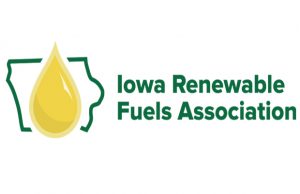 Iowa corn farmers and ethanol producers celebrated the start of production of Sustainable Aviation Fuel (SAF) this week at LanzaJet Freedom Pines Fuels but a new study shows the state needs carbon capture and sequestration (CCS) to reap benefits from increased use of ethanol-to-jet SAF.
Iowa corn farmers and ethanol producers celebrated the start of production of Sustainable Aviation Fuel (SAF) this week at LanzaJet Freedom Pines Fuels but a new study shows the state needs carbon capture and sequestration (CCS) to reap benefits from increased use of ethanol-to-jet SAF.
“Today and every day going forward, American farmers and ethanol producers are losing demand until we get carbon capture and sequestration online,” stated Monte Shaw, Iowa Renewable Fuels Association (IRFA) executive director, who was in Georgia to witness the LanzaJet grand opening. “LanzaJet is proving that SAF from ethanol is here today. Now it is up to us to produce a qualifying ethanol feedstock. Iowans need to realize that CCS is the key to the new market. Regardless of individual views on carbon policy, our business is making the products our customers want and right now we can’t do that.”
Currently, no Iowa ethanol plant has a carbon intensity score low enough to qualify as a SAF feedstock and only one plant in the entire country is using CCS to produce SAF-friendly ethanol. By contrast, Brazil produces over 7 billion gallons of ethanol with a carbon score expected to qualify for SAF production.
A new study by Decision Innovation Solutions (DIS) has found that fully maximizing the potential of the SAF production in Iowa will have a generation impact.
To meet the demand, DIS projects that Iowa would build:
11 new 200-million-gallon-per-year ethanol plants
5 new ethanol-to-jet SAF production facilities
3 new facilities that convert soybean oil, fats and greases to SAF.
“The construction and ongoing operations of these facilities hold the promise to fundamentally transform rural Iowa in ways even bigger than the current biofuels industry,” stated David Miller, DIS chief economist and report author. “We have the opportunity to set the stage for the next 25 years when corn production will rise to 20-21 billion bushels per year based on current acres. No other market but SAF can utilize that corn. If we do not embrace low carbon ethanol to unlock SAF, we are likely to lose 20 million acres of corn across the Midwest and the $10 billion in farm income those acres create. What will our legacy be?”
IRFA held a press call this week to introduce the study. Listen to it below.
Iowa SAF Study press call 29:00

